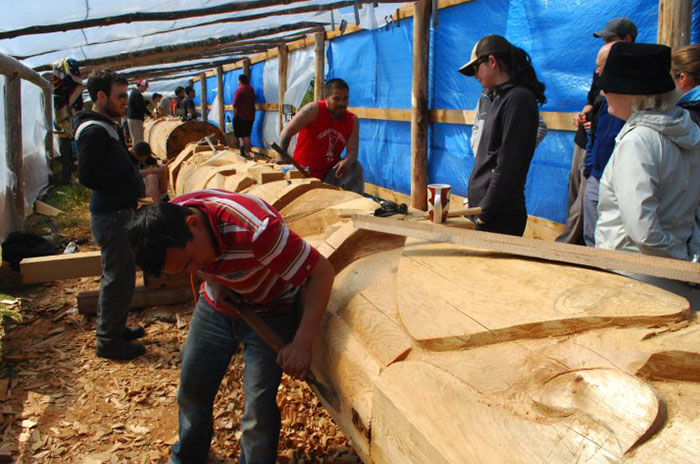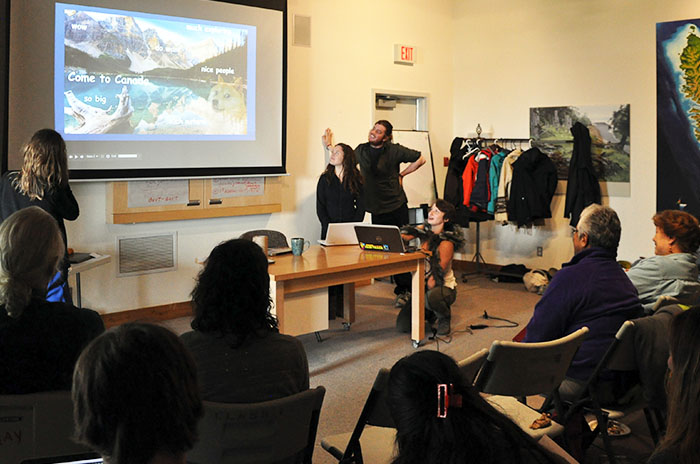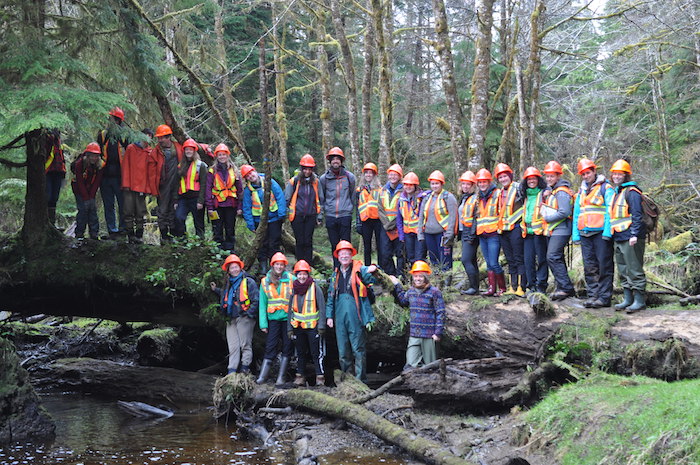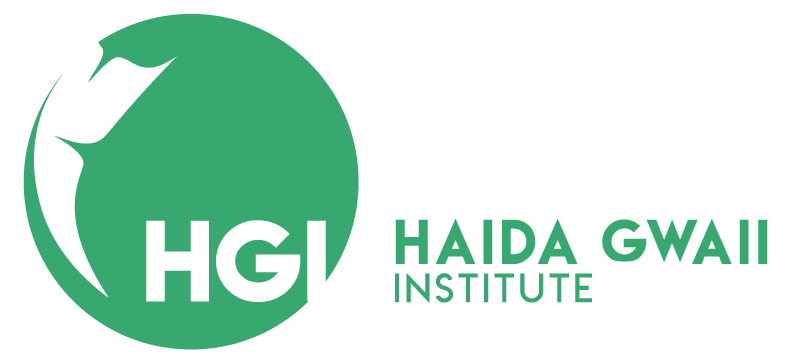Natural Resource
Studies

Haida Gwaii Semester in Natural Resource Studies
Next offering to be decided - Please contact hg.institute@ubc.ca for more information
This program is designed for students from interdisciplinary backgrounds who have completed the first two years of an undergraduate degree. The courses consider natural resources through a social lens, blending classroom instruction with a variety of community activities and local guest speakers. Content examines complex issues relating to the management of natural resources throughout history, the socio-economic impacts of decision-making, First Nations rights and title, and more. The final course includes a strong field component and the opportunity to develop basic field research and technical skills.
HGSE 350 - Case Studies in Haida Gwaii
In this course, the capstone of the Haida Gwaii Semester in Natural Resource Studies, students integrate concepts and themes from the semester’s four modular courses. This is done in the context of community and through the lenses of culture, ecology, economy/industry, government, places, and people. Students engage in an in-depth exploration of the communities of Haida Gwaii through community-based experiences and community service learning. Workshops are offered to develop students’ skills in working in resource dependent, cross-cultural communities: planning and community-based research, giving effective presentations, group work, and technical writing.

HGSE 351 - History & Politics of Resource Management
How do ideas about nature influence the ways in which we interact with and manage natural resources? Why is history important in understanding the politics of resource management? This course takes a historical approach to examining resource management and conflicts in Canada, with a particular focus on forests. Course topics include the social nature of forests; the history of forestry in Canada; First Nations, imperialism, and forests; race, class and gender in the woods; and contemporary forest conflicts and claims.

HGSE 352 - First Nations Governance & Natural Resource Management
This course provides an overview of First Nations’ governance of resources and territory, with a focus on Haida Gwaii. Through case studies and guest speakers, we will examine local resource governance structures and processes, such as those related to land and marine planning, forestry, fisheries, cultural heritage, and protected areas. In order to understand how these resources are managed today, we need to consider the colonial history of the province. How did the Crown gain control of lands and resources and exclude First Nations from participation in resource governance and economies? What are the different ways the First Nations have fought that exclusion and been successful in regaining access and control? How are First Nations engaging in resource management with provincial and federal governments and other diverse interest groups today? Course topics include: Indigenous laws, stewardship principles, and traditional knowledge; colonialism and resistance; Aboriginal rights; First Nation-Crown relations; reconciliation; and co-management.

HGSE 353 - Rainforest Ecology & Management
How do natural and anthropogenic disturbances alter the structure, composition and function of coastal temperate rainforests? How do forests respond to different types and intensities of disturbance, and what are the implications for forest management? How can we use field data to examine and understand coastal temperate rainforests? In this course students learn about, explore, and collect data in a variety of forest ecosystems at a range of successional stages in Haida Gwaii.

HGSE 354 - Diversifying Resource Dependent Communities
Large-scale political and economic changes are reshaping rural, resource-dependent communities in British Columbia and elsewhere, but responsibility for community wellbeing and survival is increasingly being left to communities to address. This course offers an in-depth examination of the forces that restructure local economies, both historic and contemporary, and links rural economic development with the legacy of resource development and marginalization of Aboriginal communities across British Columbia.




